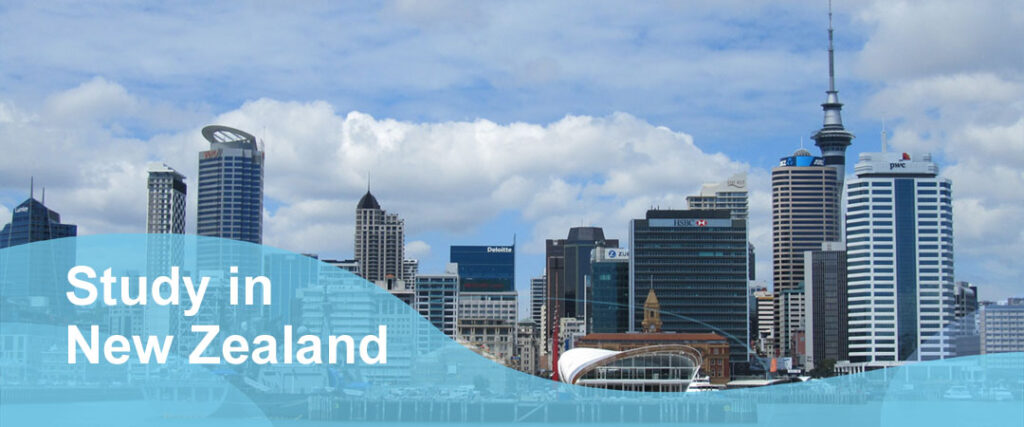
New Zealand is a small island country located in the southwestern Pacific Ocean. It is made up of two main islands, the North Island and the South Island, as well as many smaller islands. The capital city is Wellington, but the largest city is Auckland. Most of the major part of country lies close to the coast with mild temperatures. The average temperature declines as you travel towards the south. People of New Zealand are called Kiwi which is named after its national bird Kiwi. New Zealand is a not a highly populated country with a population of 4.5 million in total and one third of the population are resides in Auckland.
As the country lies in the Southern Hemisphere, New Zealand has summer during the time when we have winters in Nepal and vice-versa. This can be different experience for everyone from Nepal. Yes, it is just the opposite then how it is Nepal. January and February are the warmest months, and July is the coldest month of the year. In summer, the average maximum temperature ranges between 20-30ºC (70-90°F) and in winter between 10-15ºC (50-60°F).
New Zealand has several popular cities, with many located on the North Island, including Auckland, Hamilton, Tauranga, Rotorua, Gisborne, Palmerston North, and Wellington. On the South Island, popular cities include Nelson, Christchurch, Queenstown, Dunedin, and Inverargill. New Zealand is known for its stunning natural beauty, including majestic mountains, pristine beaches, and crystal-clear lakes. The country is also home to unique wildlife, such as the kiwi bird, the tuatara reptile, and the kakapo parrot. The indigenous Maori people have a rich culture and history in New Zealand, and their traditions are still present in the country today. New Zealand is also known for its outdoor activities, such as hiking, skiing, surfing, and bungee jumping. The country is a popular destination for adventure-seekers from around the world.
Auckland being 3rd expensive city in the world, people love to stay here because the climate is just perfectly the best with more opportunities than other cities blessed with beautiful scenes for your eyes to relax. New Zealand’s economy is based on mainly agriculture, farming and dairy products. Famous sports in New Zealand are rugby, sky diving, bungee, jet boating, nature hiking and cycling.
Education System and Practices:
The education system in New Zealand is world-renowned for its high-quality standards and innovative teaching practices. It’s safe and welcoming community with a world class reputation for cutting edge research and creative energy. It is an attractive destination for international students and the country’s educational institution are well regarded throughout the world so it’s not surprising so many people wish to study in New Zealand. New Zealand has a strong focus on student-centered learning, which means that teachers aim to tailor their teaching to meet the individual needs of each student. There is a strong emphasis on practical, hands-on learning in New Zealand education system, with a focus on experiential and inquiry-based learning.
The whole of New Zealand’s educational system is based upon the prestigious British system. The universities offer numerous opportunities for research and internships where students can build practical skills needed in their future career and academic life. The courses offered in New Zealand trend to be highly ranked on a global level and well recognized internationally. Students are encouraged to think outside the box and find their own solutions. Students are educated more on implementing theoretical education with practical approach.
Tertiary education providers offer courses which range from transition programmes through to postgraduate study and research. Higher degree level education is mainly offered at Universities. New Zealand has eight state-funded universities, 16 Institutes of Technology and Polytechnics (ITPs) and about 550 Private Training Establishments (PTEs), which include English language schools.
Universities offer higher degree-level education. Programmes are research-led and generally academic rather than vocational. It is characterized by a wide diversity of teaching and research, especially of a higher level, that maintains, advances, disseminates and assists the application of knowledge and develops intellectual independence.
ITPs and a few larger PTEs offer vocational degree-level education. It delivers technical, vocational and professional education. They also promote research, particularly applied and technological research that aids development.
PTEs tend to offer specific vocational programmes, mainly at certificate and diploma level. A private organization providing education/training (i.e. they are not state owned) where many companies and government training establishments register their staff training operations as training establishments.
Studying in New Zealand gives you qualifications that international employees value and reward, and connects you to a lifelong network of friends and contacts. Students in New Zealand are supported to solve problems, process information, work with others, create and innovate. Whichever level you’re studying at, New Zealand can give you a high-quality education that will enable you to achieve your goals.
Opportunities for students:
New Zealand also provides students with the opportunity to work part-time during their studies to support themselves financially and gain valuable work experience. International students can work up to 20 hours per week while studying and full time during their scheduled course breaks, such as holidays and semester breaks. After completing their studies, international students can apply for a post-study work visa, which allows them to work full time, and further immerse themselves in New Zealand working culture while earning an income. This can help them earn extra money to cover their living expenses and gain work experience.
Many companies in New Zealand offer internships to students, which can be a great way to gain practical work experience and build networks in your chosen field. New Zealand has a thriving startup ecosystem, and there are several initiatives and programs to support young entrepreneurs. Students can take advantage of these opportunities to start their own businesses or work with startups.